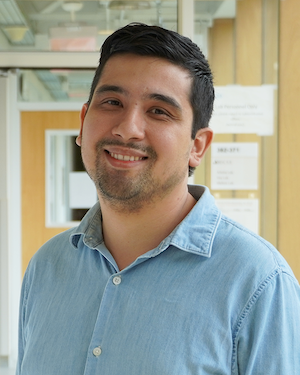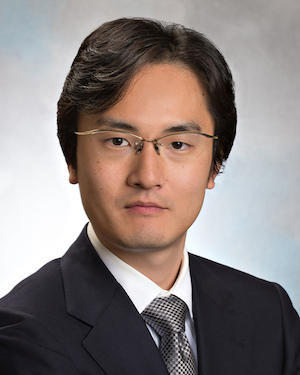Two HSCI researchers will receive the National Institutes of Health (NIH) Director's New Innovator Award. Jason Buenrostro, Ph.D. and Ryuji Morizane, M.D., Ph.D. have been recognized for their highly innovative biomedical research that has transformative potential.
“Each year, I look forward to seeing the creative approaches these researchers take to solve tough problems in biomedical and behavioral research,” said NIH Director Francis S. Collins in the award announcement. “I am confident the 2019 cohort of awardees has the potential to advance our mission of enhancing health through their groundbreaking studies.”
Beyond the genome

Buenrostro is a Harvard assistant professor of stem cell and regenerative biology and a principal faculty member of HSCI. He is interested in the ways that adult stem cells can harbor epigenetic errors, and how these relatively minute changes can lead to large changes in a cell’s normal capacity to self-renew and differentiate. Sometimes called epi-mutations, those errors don’t result in changes to a cell’s DNA sequence, but rather produce changes in the expression of specific genes.
Buenrostro plans to use the NIH funding to develop a model for understanding how and why cells make certain fate decisions. Specifically, he will examine errors that occur in stem cells as they maintain their epigenetic state, and how these errors are propagated to daughter cells.
“Traditional methods used to study the epigenome … lack the resolution to measure epigenomic dynamics in human tissues,” Buenrostro said. “We want to develop new methods to measure the epigenome at single-cell resolution and apply these methods to primary hematopoietic stem cells.”
This work will shed new light on how changes in the epigenome may impact blood stem cells in normal and diseased states. Moreover, it could provide powerful insights into therapeutic targets.
Modeling kidney disease

Morizane is an assistant professor of medicine at Massachusetts General Hospital and an affiliate faculty member of HSCI. He has pioneered research in stem cell differentiation and kidney “organoids,” or miniature organs. He directs research groups that investigate regenerative medicine for the kidney, genome editing in stem cells, and kidney disease modeling.
Morizane plans to continue developing the kidney organoid technology that his research group has created from human pluripotent stem cells. An HSCI seed grant supported the preliminary research that led to the NIH award.
“I am deeply honored to receive this NIH Director's New Innovator Award,” Morizane said. “Our proposed work will further advance this technology toward the ultimate goal of generating artificial kidneys as a novel form of renal replacement therapy.”
Read more
Read about the 16 Harvard scientists who will receive NIH High-Risk, High-Reward awards in “Promising projects,” published in the Harvard Gazette on October 2, 2019.
